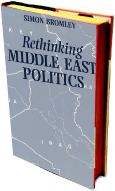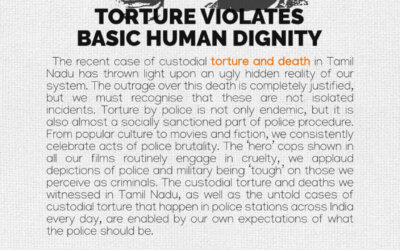 Bromley considers a range of debates on the character of political and socio-economic development in the Middle East, focusing on the linked processes of state formation and capitalist development in the modern world. Debates on this book include both general theorizations of the region and particular models of Middle East politics. Today, however, the terms “Middle Eastern” and “Middle East” have been adopted by the people of the entire region to refer to themselves and to their part of the world, in much the same way as such terms as “Europe,” “Central Asia,” and “Southeast Asia” are used to broadly identify highly complex and culturally diversified regions of the world. Rethinking Middle East Politics presents a new way of analyzing politics in the Middle East, offering a perspective that has a major implication for rethinking third world politics. This book gives us a rare insight into the origin and development of the modern Middle East politics. It examines how the state system came into existence. For this purpose it provides an analytical framework for the understanding of Middle East politics. Simon Bromley seeks to reformulate the central questions involved in the study of state formation. He builds a comparative framework based on an examination of key developmental processes in Turkey, Egypt, Iraq, Saudi Arabia, and Iran and offers a range of substantive theses on the place of democracy and Islam in the region. His findings explain a very large part of what appears to be significant in the emergence of the modern Middle East. He provides very different view from Orientalist narration and Eurocentric interpretation about the Middle East politics. He offers his own interpretation about the socio-political development and state formation of the Middle East.
Bromley considers a range of debates on the character of political and socio-economic development in the Middle East, focusing on the linked processes of state formation and capitalist development in the modern world. Debates on this book include both general theorizations of the region and particular models of Middle East politics. Today, however, the terms “Middle Eastern” and “Middle East” have been adopted by the people of the entire region to refer to themselves and to their part of the world, in much the same way as such terms as “Europe,” “Central Asia,” and “Southeast Asia” are used to broadly identify highly complex and culturally diversified regions of the world. Rethinking Middle East Politics presents a new way of analyzing politics in the Middle East, offering a perspective that has a major implication for rethinking third world politics. This book gives us a rare insight into the origin and development of the modern Middle East politics. It examines how the state system came into existence. For this purpose it provides an analytical framework for the understanding of Middle East politics. Simon Bromley seeks to reformulate the central questions involved in the study of state formation. He builds a comparative framework based on an examination of key developmental processes in Turkey, Egypt, Iraq, Saudi Arabia, and Iran and offers a range of substantive theses on the place of democracy and Islam in the region. His findings explain a very large part of what appears to be significant in the emergence of the modern Middle East. He provides very different view from Orientalist narration and Eurocentric interpretation about the Middle East politics. He offers his own interpretation about the socio-political development and state formation of the Middle East.
This book mainly focuses on the history of modern Middle East politics. Bromley illustrate comparative or thematic treatment of the state and politics in the Middle East. It is a reevaluation or rethinking of all the questions related with political and socio-economic development in the Middle East. Bromley has written an incisive, balanced, and insightful treatment of some of the most important and influential paradigms in Middle Eastern studies. Looking at each of the analytical frameworks critically, he offers his own interpretation of some of the more important forces at work in the process of state formation in the Middle East – A provocative examination of a much debated aspect of Middle Eastern politics. It should be carefully read by anyone who is interested in examining the historical forces behind state formation in the Middle East.
Thus this book rethinks politics and development in the region at a more general level rather than a complicated one. For this reason Simon Bromley set out the rethinking Middle East politics in six chapters. The basic claim of this book, which its constructive and substantive elements seek to explore and to develop, is that by focusing on the historical character of surplus appropriation, by detailing the specific social relations which have governed these process and by considering their patterns of reproduction and transformation by social forces, we can explain a very large part of What appears to be significant about the development of the modern Middle East. Chapter one explains about the understanding of the Middle East on theoretical perspective. Here he reviews Middle East politics in three ways. First, a variant of culturalist accounts in which it is Islam that gives the Middle East its distinctive characteristics. Second, the kind of argument found in mainstream social theory deriving from Max Weber. As an alternative to both of these Bromley suggest historical materialism provides a better way of approaching the study of the Middle East. Chapter two, from tributary empires to state system, explains decline of Middle East. This chapter includes Ottoman disintegration and the emergence of the Turkish republic and European penetration into the region, the evolution of the eastern question and the project of imperialist and nationalist state formation immediately after the First World War.
Chapter three of this book, Rethinking Middle East politics is the crux of this debate. This chapter sketched the theorization of state formation in the Middle East. In order to define the nature of state formation in the region a number of exiting approaches to Middle Eastern politics are critically reviewed and the main aspects of the international environment of the process are sketched. In chapter four, these studies are organised on a comparative basis as the main features of state formation and dependent development are examined in Turkey, Egypt, Iraq, Saudi and Iran. Chapter five provides a thematic focus concerning the state and democracy, the nature
of the regions political economy and the place of Islam in the modern Middle East, and also its explain the patterns of social development in the middle east. The above mentioned points are the main patterns of social change in the region. Finally, a short conclusion draws an end to the discussion with some suggestions as to how the general framework deployed here might be further extended and refined in future research. In short this book is more fruitful for the theoretical and methodological understanding of the state formation of the modern Middle East.
Rethinking Middle East Politics: written by Simon Bromley
Publisher: Polity Press
Pages: 203




0 Comments